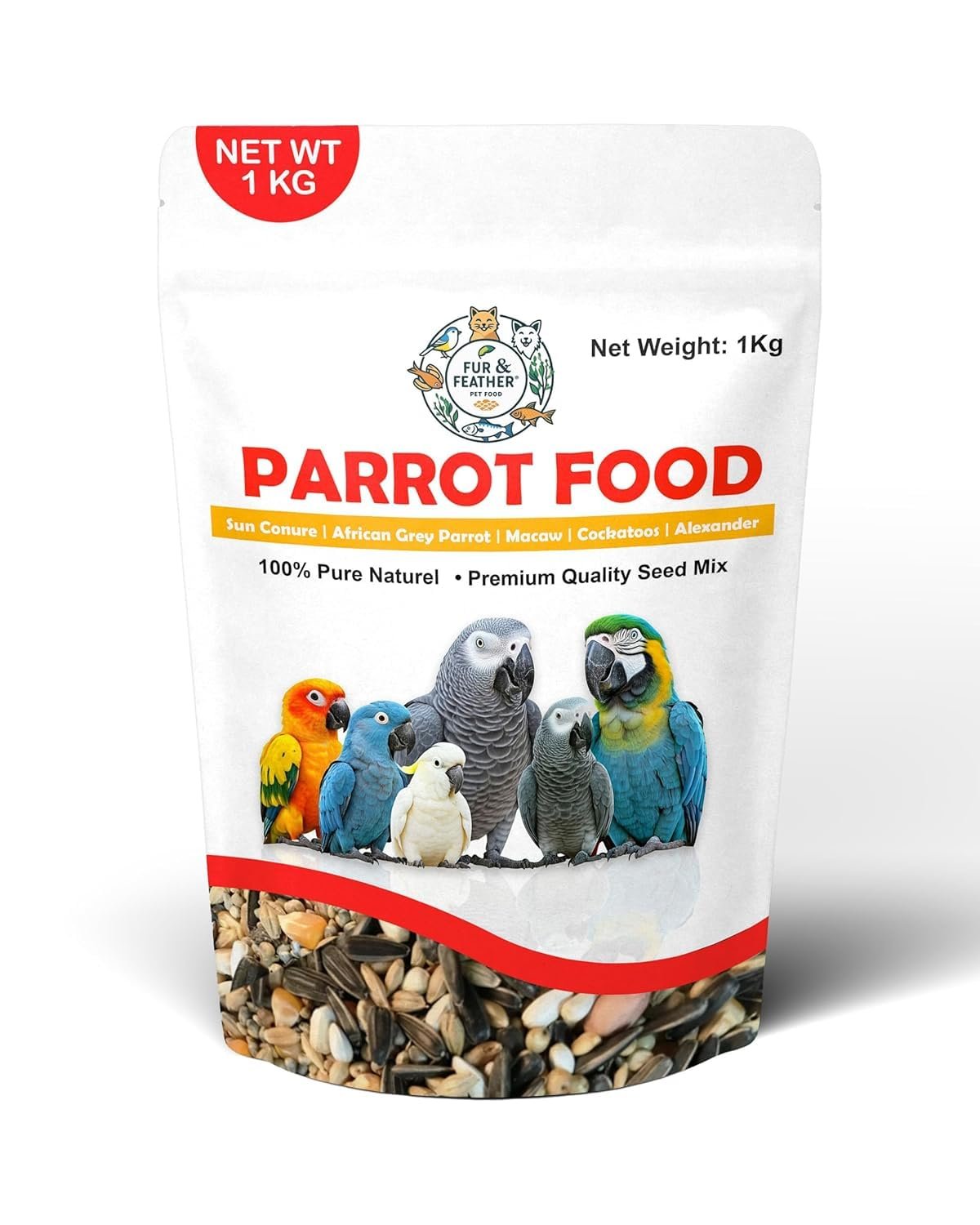Parrot
Parrot
Original price was: ₹500.00.₹399.00Current price is: ₹399.00.
This specification provides a comprehensive and ethical framework for creating or evaluating a healthy parrot diet. It prioritizes nutritional completeness, safety, and the psychological needs of the bird.
Parrot Food
- Pellets (Primary Component): A high-quality, formulated parrot pellet should make up the majority of the diet (typically 60-75%). These pellets are designed to provide a complete and balanced nutritional profile, preventing selective feeding that can occur with seed-based diets. They should be free from artificial colors, flavors, and preservatives.
- Fresh Fruits and Vegetables (Daily Supplement): A wide variety of fresh, chopped fruits and vegetables should be offered daily. These provide essential vitamins, minerals, antioxidants, and fiber. Examples include dark leafy greens (kale, spinach), bell peppers, carrots, broccoli, apples, berries, and bananas. All fruits and vegetables should be thoroughly washed before serving.
- Seeds (Limited Treat): Seeds should be offered in very limited quantities (e.g., 5-10% of the total diet) as a treat or a reward. Seed-heavy diets can lead to obesity and nutritional deficiencies. A good seed mix will include a variety of seeds such as safflower, sunflower (limited), millet, and hemp.
- Nuts and Legumes (Treat): A small amount of unsalted, roasted nuts (e.g., almonds, walnuts) or cooked legumes (e.g., lentils, beans) can be provided as a treat. These are rich in protein and healthy fats.
Nutritional Breakdown (Approximate Values):
The following is a general nutritional guideline. The exact requirements may vary depending on the parrot species, age, and activity level.
- Crude Protein: 12-20%
- Crude Fat: 4-10%
- Crude Fiber: 3-8%
- Moisture: Less than 12%
- Vitamins and Minerals: The food should be fortified with essential vitamins and minerals, including but not limited to:
- Vitamin A: Crucial for vision, immune function, and feather health.
- Calcium: Essential for bone health, especially for laying hens.
- Vitamin D3: Necessary for calcium absorption.
- B Vitamins: Important for metabolism and nerve function.
- Minerals: Zinc, Manganese, Iron, and Copper.
Safety and Quality Control:
- No Toxic Ingredients: The food must be free from any ingredients known to be toxic to parrots, such as avocado, chocolate, alcohol, and caffeine.
- Absence of Additives: Avoid foods with artificial colors, flavors, or preservatives. These can be harmful and are unnecessary for a nutritious diet.
- Quality Ingredients: All ingredients should be of human-grade quality to ensure safety and nutritional value.
- Aflatoxin and Mold Testing: The food should be regularly tested for contaminants such as aflatoxins, which can be present in grains and nuts and are highly toxic to parrots.
- GMO-Free (Optional but Recommended): Specifying non-GMO ingredients can be a selling point for many parrot owners.
Storage and Packaging:
- Airtight Packaging: Food should be packaged in airtight, resealable containers to maintain freshness and prevent contamination.
- Clear Labeling: The packaging must clearly list all ingredients in descending order by weight, the nutritional analysis, feeding instructions, and a “best by” date.
- Storage Instructions: The label should provide clear instructions to store the food in a cool, dry place to prevent spoilage and insect infestation.
Additional Considerations:
- Species-Specific Formulations: While a general specification is useful, an ideal diet may be formulated to meet the specific needs of certain parrot species (e.g., high-fat diets for macaws, low-fat for Amazon parrots).
- Environmental Enrichment: Providing food in a variety of ways (e.g., in a foraging toy, scattered in a tray) is as important as the food itself for the psychological well-being of the parrot.


Reviews
There are no reviews yet.